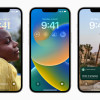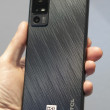NTIA Petitions FCC to Mandate that Carriers Unlock Phones
Sep 17, 2013, 6:11 PM by Eric M. Zeman
The National Telecommunications and Information Administration (NTIA) today filed a formal petition with the Federal Communications Commission regarding the issue of unlocking cell phones. Specifically, the NTIA proposed that the FCC begin a rulemaking process that would require carriers to unlock cell phones, tablets, and other devices for use with other carriers upon request. At the moment, it is illegal to unlock cell phones thanks to an exemption in the Digital Millennium Copyright Act that the Library of Congress allowed to lapse earlier this year. "Americans should be able to use their mobile devices on whatever networks they choose and have their devices unlocked without hassle," said Lawrence E. Strickling, Assistant Secretary of Commerce for Communications and Information and NTIA Administrator. The NTIA wants the process started immediately and believes that carriers, which put the locks on phones in the first place, should be responsible for unlocking any device in a way that is "expeditious and transparent." The NTIA warns consumers, however, that just because a carrier unlocks their device, it doesn't mean the consumer is no longer beholden to any contract or service agreement he or she has with the carrier. Earlier this year, Representative Zoe Lofgren from California proposed a bill that would amend the Digital Millennium Copyright Act in a way that would make it legal to unlock devices such as cell phones. The House Judiciary Committee approved that bill in July, which will eventually make it legal for consumers to unlock their cellphones without first obtaining permission from their wireless carrier. The CTIA Wireless Association, which represents the mobile network operators' interests in Washington, was quick to respond to the NTIA's petition. "CTIA welcomes the opportunity to work with the Administration and the FCC to highlight the wealth of device options that exist for U.S. consumers today and carriers' transparent and competitive unlocking policies," said Scott Bergmann, CTIA Vice President of Regulatory Affairs. The CTIA, however, wants to make sure all parties are properly educated about the existing options and "the technological realities that exist among different phones and different carriers." The FCC has yet to respond formally to the NTIA's petition.
Comments
I think
Carrier phones are often optimized to work with a certain network (A&TT by example), and yes, they work with other networks, they crummily work with other carriers.
To get started, because a cheaper service usually isn't as good as the other more expensive service offered by that other bigger carrier. Second, the phone has been optimized for the big carrier's network, so you won't be experiencing an optimal service from your provided (you'd most likely be doing better with a cheaper phone that's been optmiized for the smaller carrier's network)
It is fair enough to be able to sell or hand your old unlocked cellphone to a friend or relative, once you have upgraded to another d...
(continues)
(continues)
>>and yes, they work with other networks, they crummily work with other carriers.
Not true. I've seen countless phones that were made for ATT that worked fantastically on T-mobile. In fact, I would say that quite contrarily most ATT ph...
(continues)
(continues)
Something to think about


 iOS 16 Revamps the Lock Screen
iOS 16 Revamps the Lock Screen

